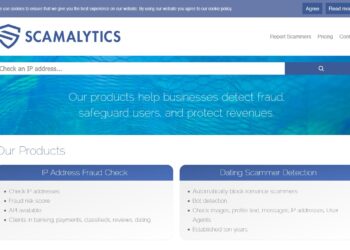In the ever-evolving landscape of cybersecurity, Python has emerged as a formidable force. Its simplicity, versatility, and extensive libraries have made it a popular choice for both offensive and defensive security professionals. Python’s role in security is not limited to writing scripts or automating tasks; it extends to the realm of security frameworks that empower developers and security experts to build robust, community-driven protection mechanisms. In this article, we will explore the world of Python security frameworks and how they contribute to bolstering the digital fortifications of modern applications and systems.
The Foundation of Python Security Frameworks
Python security frameworks are pre-built sets of modules, tools, and methodologies that aid in addressing security challenges across different domains, from web application security to network monitoring. These frameworks provide a structured approach to implementing security controls and practices, often leveraging the collective wisdom of the open-source community. The collaborative nature of these frameworks ensures that they are battle-tested, continuously improved, and adaptable to emerging threats.
1. OWASP Pytm
The Open Web Application Security Project (OWASP) is well-known for its commitment to improving software security. OWASP Pytm (Python Test Module) is a framework that focuses on penetration testing automation. It streamlines the process of testing web applications for common vulnerabilities like SQL injection, cross-site scripting (XSS), and more. With Pytm, security professionals can efficiently assess the security posture of web applications and identify potential weaknesses before malicious actors exploit them.
2. Scapy
For those engaged in network security, Scapy is a Swiss Army knife. This Python-based framework allows users to craft, send, and receive packets at the network level. Scapy’s flexibility enables security experts to build custom network tools, perform packet manipulation, and analyze network traffic. Its extensive capabilities make it an indispensable tool for network monitoring, troubleshooting, and even creating custom exploits for vulnerability research. Explore the world of Python security frameworks with confidence by enlisting the expertise of experienced Python developers for hire, who can leverage tools like Scapy to strengthen your network security, enhance packet analysis, and fortify your digital defenses.
3. Web2py
Web application security is a critical concern in today’s digital landscape. Web2py is a full-stack web framework that places security at its core. It enforces best practices like input validation, data sanitization, and the prevention of common attacks. With built-in features for authentication, access control, and cross-site request forgery (CSRF) protection, Web2py simplifies the process of creating secure web applications. Its emphasis on security by default makes it a valuable asset for developers aiming to minimize vulnerabilities from the outset.
4. PyCrypto
Cryptography is a cornerstone of modern cybersecurity. PyCrypto is a library that provides cryptographic functions and protocols, enabling developers to secure data transmission, storage, and authentication. With PyCrypto, Python developers can implement encryption, digital signatures, and secure key generation seamlessly. This library is instrumental in safeguarding sensitive data and ensuring the integrity and confidentiality of digital communications.
5. Django
Django, a widely used web framework, prioritizes security in its design philosophy. With features like automatic SQL injection protection, cross-site scripting (XSS) mitigation, and clickjacking prevention, Django mitigates common web vulnerabilities. Its robust authentication and authorization mechanisms empower developers to create applications with strong user identity management. Additionally, Django’s security updates and proactive community contribute to maintaining a secure development environment.
6. OWASP Security Knowledge Framework
The OWASP Security Knowledge Framework (SKF) is an open-source resource that educates developers about secure coding practices. While not a traditional framework, SKF serves as a comprehensive guide to integrating security into the software development life cycle. It provides modules, documentation, and code examples to help developers understand and implement security measures effectively.
Leveraging Community Wisdom
One of the most significant advantages of Python security frameworks is their community-driven nature. These frameworks are not developed and maintained by a single entity but rather benefit from the collective expertise of security professionals, developers, and enthusiasts worldwide. This ensures that the frameworks are continuously updated to address new threats and vulnerabilities.
By leveraging these frameworks, organizations can streamline their security efforts, save time in building security controls from scratch, and tap into the knowledge of a global community of security experts. Additionally, the transparency of open-source projects allows organizations to audit the code and customize the frameworks to suit their specific security needs.
Conclusion
In a world where cyber threats are becoming increasingly sophisticated, Python security frameworks provide a valuable line of defense. They equip developers and security professionals with the tools they need to detect, prevent, and respond to security incidents effectively. These frameworks not only expedite the implementation of security measures but also enable organizations to stay ahead of evolving threats.
As the cybersecurity landscape continues to evolve, Python security frameworks will remain essential assets in the arsenal of defenders. By embracing the collaborative spirit of the open-source community, organizations can harness the power of Python to build resilient and secure applications that withstand the challenges of the digital age.






